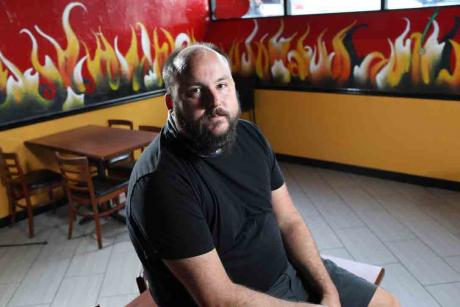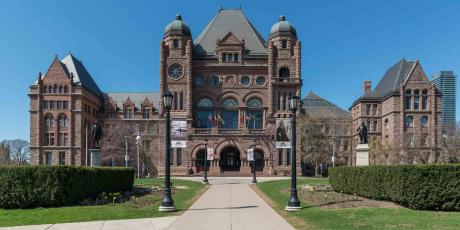I’m sorry you feel that way. It is true that municipalities have been given certain legal protections in order to limit their liability, but this is not done out of hubris or any malicious intent. Rather, it is done to ensure that municipalities are able to provide essential services without fear of being held liable for any potential mistakes or negligence. This helps protect taxpayers from having to pay for costly lawsuits and settlements.
Thanks to Ford’s provincial mandate, the Consolidated Revenue Fund is now open for settlement. This means that the damages are no longer limited and can be much higher than before. This could be a huge benefit to those who have been wronged by the government, such as Galati et al. However, it also means that Doug Ford has opened up the provincial purse to these people, which could lead to a lot of money being spent on settlements. It remains to be seen how this will affect the province’s finances in the long run, but it is clear that Doug Ford has made a major mistake in opening up this fund for settlement.
Stage 1 Exemption:
No person shall be subject to any penalty or other sanction for failing to comply with any requirement or prohibition imposed by this Act, if the failure is due to circumstances beyond their control.
- Rules for Areas in Stage 1, O Reg 82/20 (Last updated from the e-Laws site on 2021-01-25)
- Rules for Areas in Stage 2, O Reg 263/20Â (Last updated from the e-Laws site on 2021-01-25)
- Rules for Areas in Stage 3, O Reg 364/20Â (Last updated from the e-Laws site on 2021-01-25)
**The information provided in this article is for informational purposes only and should not be considered financial advice. Please consult a financial advisor for more information.
- The person responsible for a business or organization that is open shall ensure that any person in the indoor area of the premises of the business or organization, or in a vehicle that is operating as part of the business or organization, wears a mask or face covering in a manner that covers their mouth, nose and chin during any period when they are in the indoor area unless the person in the indoor area,
-
- is a child who is younger than two years of age;
- is attending a school or private school within the meaning of the Education Act that is operated in accordance with a return to school direction issued by the Ministry of Education and approved by the Office of the Chief Medical Officer of Health;
- is attending a child care program at a place that is in compliance with the child care re-opening guidance issued by the Ministry of Education;
- is receiving residential services and supports in a residence listed in the definition of “residential services and supports†in subsection 4 (2) of the Services and Supports to Promote the Social Inclusion of Persons with Developmental Disabilities Act, 2008;
- is in a correctional institution or in a custody and detention program for young persons in conflict with the law;
- is performing or rehearsing in a film or television production or in a concert, artistic event, theatrical performance or other performance;
- has a medical condition that inhibits their ability to wear a mask or face covering;
- is unable to put on or remove their mask or face covering without the assistance of another person;
- needs to temporarily remove their mask or face covering while in the indoor area,
- to receive services that require the removal of their mask or face covering,
- to engage in an athletic or fitness activity,
- to consume food or drink, or
- as may be necessary for the purposes of health and safety;
- is being accommodated in accordance with the Accessibility for Ontarians with Disabilities Act, 2005;
- is being reasonably accommodated in accordance with the Human Rights Code; or
- performs work for the business or organization, is in an area that is not accessible to members of the public and is able to maintain a physical distance of at least two metres from every other person while in the indoor area.
- Subsection (4) does not apply with respect to premises that are used as a dwelling if the person responsible for the business or organization ensures that persons in the premises who are not entitled to an exception set out in subsection (4) wear a mask or face covering in a manner that covers their mouth, nose and chin in any common areas of the premises in which persons are unable to maintain a physical distance of at least two metres from other persons.
- For greater certainty, it is not necessary for a person to present evidence to the person responsible for a business or place that they are entitled to any of the exceptions set out in subsection (4).
- A person shall wear appropriate personal protective equipment that provides protection of the person’s eyes, nose and mouth if, in the course of providing services, the person,
- is required to come within two metres of another person who is not wearing a mask or face covering in a manner that covers that person’s mouth, nose and chin during any period when that person is in an indoor area; and
- is not separated by plexiglass or some other impermeable barrier from a person described in clause (a).
1. Definitions
In this Regulation,
“area in Stage 3” means an area of the Province that is subject to the restrictions set out in this Regulation; (“zone en phase 3”)
“gathering limit” means the maximum number of people who may attend an organized public event or social gathering, as set out in section 4; (“limite de rassemblement”)
2. Application of Regulation and Exemptions
(1) This Regulation applies with respect to areas of the Province that are in Stage 3.
(2) Despite subsection (1), this Regulation does not apply with respect to a First Nation reserve or settlement, unless otherwise specified by the Minister.
3. Restrictions on Businesses and Organizations
(1) Every business and organization operating in an area in Stage 3 shall comply with any directions issued by the Chief Medical Officer of Health under section 7 of O. Reg. 82/20 (Rules for Areas in Stages 1 and 2).
4. Gatherings
(1) No person shall organize or attend an organized public event or social gathering of more than 10 people indoors, or more than 25 people outdoors, except as provided for in subsections (2) and (3).
5. Enforcement
(1) A police officer may enforce this Regulation if he or she believes on reasonable grounds that a person is contravening it.
<embed src=”https://www.ontario.ca/document/ontario-drivers-handbook/chapter-1-driving-safely” width=”800px” height=”2100px” />
You may also like

